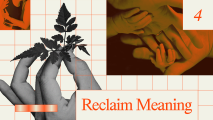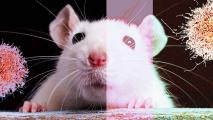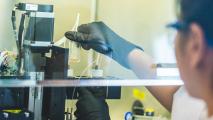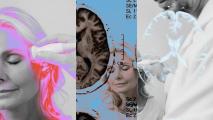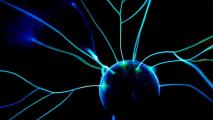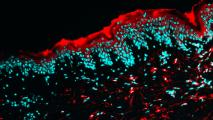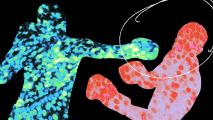
Biotech
Human history has been all but defined by death and disease, plague and pandemic. Advancements in 20th century medicine changed all of that. Now advancements in 21st century medicine promise to go even further. Could we bring about an end to disease? Reverse aging? Give hearing to the deaf and sight to the blind? The answer may be yes. And soon.
More
Serotonin plays a key role in patience and impulse control, research says
Evidence suggests that there is in fact a neurological factor to the brain’s ability to control impulses and manage patience.
Cancer vaccine for dogs appears to nearly double survival rate
Yale researchers have developed a cancer vaccine for dogs that appears to increase their 12-month survival rate from 35% to 60%.
3D-printed skin could heal wounds with less scarring
Penn State scientists have 3D-printed skin directly on top of open wounds — an achievement that could improve reconstructive surgery.
Running or yoga can help beat depression, research shows – even if it’s the last thing you feel like
Exercise can be just as impactful in treating depression as therapy, but it matters what type of exercise you do and how you do it.
Robots who share your accent are more trusted, study shows
What makes a robot seem competent and trustworthy might be different for different people.
How scientists are using sound waves to hack the brain
Korean researchers have developed a new form of ultrasound brain stimulation that could help the brain form new connections.
The 3 myths of mindfulness
Mindfulness is hugely popular today, but one philosopher has argued that certain unchecked types of mindfulness are deeply flawed.
New “spiral” contact lenses let you see up close and far away
New spiral-shaped multifocal lenses bend light in a way that corrects problems seeing up close and far away, even in poor lighting.
How the “powerhouse of the cell” could be cancer’s Achilles heel
Salk Institute researchers have found that rewiring mitochondria could make cancer cells visible to the immune system.
CRISPR could eradicate horrific parasite that’s killing cattle
Uruguay is developing a CRISPR gene drive to eradicate the New World screwworm fly, a horrific agricultural pest.
OpenBCI’s new VR headset reacts to your brain and body
OpenBCI is reshaping the relationship between humans and the virtual world with Galea Beta, a headset that measures the body and brain.
Weight-loss drug reduces cravings for opioids in small study
A first-of-its-kind trial found that GLP-1 agonists, a popular kind of weight-loss drug, could help people overcome their opioid cravings.
The untapped potential of stem cells in menstrual blood
Stem cells found in menstrual blood could unlock new therapies and diagnostic tests, some researchers argue.
Man feels hot and cold again with prosthetic hand breakthrough
Researchers have built a device that helps users feel temperature through a prosthetic arm. A new study shows it works with high accuracy.
Evidence that gamma rhythm stimulation can treat neurological disorders is emerging
Researchers survey the therapeutic potential of noninvasive sensory, electrical, or magnetic stimulation of gamma brain rhythms.
Bioluminescent plants don’t exist in nature — but you can buy one for $29
Biotech firm Light Bio is selling gene-edited bioluminescent plants that glow green in the dark for just $29.
New pharma supergroup aims to tackle skin disorders
Six biotech companies just merged to form Alys Pharmaceuticals with the goal of developing new treatments for skin disorders.
Why is anxiety spiking in young people but not older adults?
Anxiety among adults 18 to 25 nearly doubled in that time period, but remained stable for adults 50 and older.
Scientists stole a mutation from cancer and used it to kill tumors
Inserting a mutation found in cancer cells into CAR-T cells enabled them to kill a variety of solid tumors in mice.
Subscribe to the newsletter



